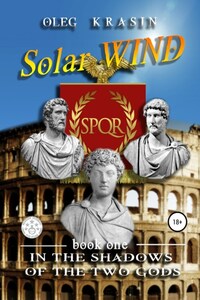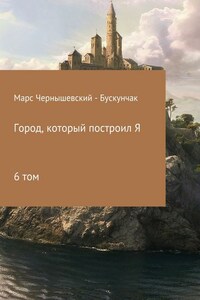Solar Wind. Book one
Автор книги - Oleg Krasin. Произведение относится к жанрам биографии и мемуары, историческая литература. Оно опубликовано в 2022 году. Книге не присвоен международный стандартный книжный номер.
He grew up during the time of two emperors who were people, and then became Gods. He taught rhetoric and philosophy, not martial art. He was preparing to rule Rome in civilian life, but he had to fight.
MARCUS AURELIUS ANTONINUS
The emperor-philosopher, for a moment, thanks to him, the world was governed by the best and greatest man of his age.




